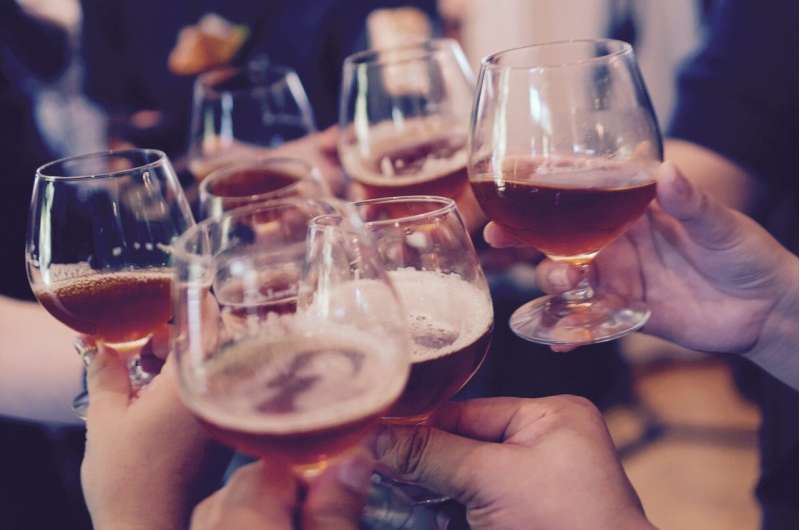
The overwhelmed pandemic parent has become a ubiquitous symbol of the stress and despair many have felt since COVID-19 spread widely. With many parents—especially moms—taking on additional duties related to their children, like overseeing e-learning and providing activities and entertainment, one might expect an uptick in the consumption of alcohol. And a new study by Sarah Mustillo, the I.A. O’Shaughnessy Dean of the University of Notre Dame College of Arts and Letters and a professor of sociology, and colleagues reveals one in six parents allowed teens to drink during quarantine.
It was a different story pre-COVID. All surveyed parents responded that they did not allow their minor adolescents to drink prior to quarantine. The study, published in the Journal of Adolescent Health, involved 456 parents from five Midwestern U.S. states—Illinois, Indiana, Ohio, Pennsylvania and Wisconsin—with two adolescent siblings about 2.5 years apart. The families completed online, confidential surveys during two waves of the COVID-19 shutdown in the spring of 2020.
Of the 16 percent who did allow at least one child to drink at home, 46 percent allowed both children to drink; 24 percent allowed only the older sibling; and 4 percent only allowed the younger sibling.
Many states have exceptions to drinking age laws. For example, in Louisiana, Nebraska, Nevada, New Jersey, Oklahoma and South Carolina, minors are permitted to drink on private, non-alcohol-selling premises without parental consent. In 29 states, minors can drink on private, non-alcohol-selling premises with parental consent.
The researchers found that the strongest indicator of permissible drinking for adolescents was if the teens already drank before the COVID-19 lockdown. Those adolescents who had parents who drank were more likely to get parents’ permission to imbibe. Mustillo and her colleagues found the number of families newly allowing both siblings to consume alcohol at home particularly surprising.
“Many parents logically believe that allowing students to drink under monitored and controlled circumstances, such as at home with parents, might lead to less misuse or binge drinking in the future, but data do not generally support that conclusion,” Mustillo said. “Thus, finding that parents were more likely to allow drinking during the pandemic is concerning.”
Parent alcohol permissiveness and early drinking are risk factors for binge drinking, so Mustillo and her co-authors recommend that adolescent well-child visits with pediatricians should continue to follow alcohol screening guidelines and that doctors support parents to maintain alcohol-free childhoods. They also recommend that future research should explore underlying causes for changes in parenting practices and should test whether younger siblings were permitted to drink earlier than expected. In addition to alcohol permissiveness, the team also recommends that future studies examine permissiveness changes regarding diet, sleep, screen use and other behavioral routines, and identify long-term effects on parenting and health after the pandemic ends.
Source: Read Full Article
